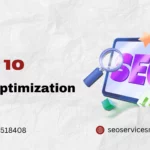Are you a business owner looking to take your brand online? In today’s digital age, having a strong online presence is vital for success. And when it comes to setting up an e-commerce website, choosing the right platform and services is crucial. But with so many options available in the market, how do you navigate through the sea of choices and find the best e-commerce website services for your business? Well, look no further. In this comprehensive guide, we will walk you through everything you need to know to make an informed decision. From understanding your business needs and goals to evaluating different e-commerce platforms, we’ve got you covered. We’ll also dive into the key features and functionalities to consider, along with tips for seamless integration and customization. By the end of this guide, you’ll have the knowledge and confidence to choose the best e-commerce website services that align perfectly with your business objectives. So, let’s get started on this exciting journey towards online success!
The Importance of a High-Quality E-commerce Website
In today’s digital marketplace, having a high-quality e-commerce website is no longer a luxury, but a necessity. Your website serves as the face of your brand and acts as a virtual storefront for your customers. It is where potential customers will form their first impression of your business, and where existing customers will go to make purchases and interact with your brand. A well-designed and user-friendly e-commerce website can significantly impact your business’s success, attracting and retaining customers, and driving sales. On the other hand, a poorly designed website can turn potential customers away and hinder your growth. Therefore, investing in a high-quality e-commerce website is crucial for the long-term success of your business.
When it comes to e-commerce website services, there are several options available, each with its own set of features and functionalities. From self-hosted platforms to fully managed solutions, the choice can be overwhelming. That’s why it’s essential to take the time to evaluate your business needs and goals before making a decision. By understanding what you require from your e-commerce website, you can narrow down your options and choose the best e-commerce website services that align with your objectives.
Types of E-commerce Website Services
Before diving into the specifics of choosing the best e-commerce website services, it’s important to understand the different types of services available in the market. Depending on your business requirements, you can choose from the following options:
1. Self-Hosted Platforms: These platforms provide you with the software needed to build and manage your e-commerce website. You will need to find a hosting provider, install the software, and handle all technical aspects of your website. This option offers more control and customization but requires technical expertise.
2. Fully Managed Solutions: With fully managed e-commerce solutions, all the technical aspects of your website are taken care of by the service provider. You don’t need to worry about hosting, security, or software updates. This option is ideal for business owners who want a hassle-free solution and don’t have the technical know-how.
3. Cloud-Based Platforms: Cloud-based platforms offer the flexibility of managing your e-commerce website from anywhere with an internet connection. They provide scalability, security, and easy integration with other business tools. This option is suitable for businesses that want a scalable solution with minimal maintenance.
4. Open-Source Platforms: Open-source platforms are community-driven, meaning the software is freely available and can be customized to suit your specific needs. This option is ideal for businesses with technical expertise and a desire for full control over their website’s functionality.
Now that you have an understanding of the different types of e-commerce website services available, it’s time to dive into the considerations you should keep in mind when choosing the best e-commerce website services for your business.
Considerations When Choosing E-commerce Website Services
Choosing the right e-commerce website services for your business is not a decision to be taken lightly. It requires careful consideration of various factors to ensure that the chosen platform meets your business needs and goals. Here are some key considerations to keep in mind:
1. Business Objectives: Start by identifying your business objectives and goals. What do you want to achieve with your e-commerce website? Do you want to increase sales, expand your customer base, or improve brand visibility? Understanding your business objectives will help you choose a platform that aligns with your goals.
2. Scalability and Flexibility: Consider the future growth potential of your business. Will the chosen e-commerce website services be able to scale with your business? Can they accommodate increased traffic and handle a growing product catalogue? Look for platforms that offer scalability and flexibility to support your business’s long-term growth.
3. User Experience: User experience plays a crucial role in the success of your e-commerce website. A seamless and intuitive user interface can improve customer satisfaction and increase conversions. Look for platforms that offer easy navigation, mobile responsiveness, and customizable design options.
4. Integration and Customization: Consider the integration capabilities of the e-commerce website services. Can they easily integrate with your existing business tools, such as payment gateways, inventory management systems, and marketing automation software? Additionally, check if the platform allows customization to match your brand identity and unique requirements.
5. Security and Compliance: Security is paramount when it comes to e-commerce websites. Ensure that the platform you choose provides robust security measures to protect your customers’ sensitive information. Also, consider any industry-specific compliance requirements that your business needs to adhere to.
By considering these factors, you can narrow down your options and choose e-commerce website services that are tailored to your business needs. Now, let’s explore some popular e-commerce website platforms in the market and compare their features and functionalities to help you make an informed decision.
Popular E-commerce Website Platforms
When it comes to choosing the best e-commerce website services, there are several popular platforms to consider. Let’s take a look at some of the leading e-commerce website platforms and their key features:
1. Shopify: Shopify is one of the most popular e-commerce platforms, known for its user-friendly interface and extensive app marketplace. It offers a wide range of customizable themes, secure payment options, and seamless integration with various third-party tools.
2. WooCommerce: WooCommerce is a powerful plugin for WordPress that transforms your website into an e-commerce store. It offers flexibility, a vast library of extensions, and easy integration with other WordPress plugins. WooCommerce is ideal for businesses already using WordPress as their content management system.
3. Magento: Magento is a robust and scalable e-commerce platform suitable for businesses of all sizes. It provides advanced features, multi-store functionality, and strong SEO capabilities. Magento offers both a self-hosted version and a cloud-based solution, giving you the flexibility to choose based on your requirements.
4. BigCommerce: BigCommerce is a fully hosted e-commerce platform that offers a wide range of features, including built-in marketing tools, mobile optimization, and seamless integration with popular payment gateways. It provides scalability, security, and excellent customer support.
These are just a few examples of popular e-commerce website platforms available in the market. Each platform has its own strengths and weaknesses, so it’s important to evaluate them based on your specific business needs. Now, let’s compare these platforms and their features to help you make an informed decision.
Comparison of E-commerce Website Services
When choosing the best e-commerce website services for your business, conducting a thorough comparison of different platforms is essential. Here are some key aspects to consider when comparing e-commerce website services:
1. Ease of Use: Look for platforms that offer a user-friendly interface and intuitive navigation. Consider the learning curve and whether you or your team will be able to easily manage and update the website.
2. Design and Customization: Evaluate the design options and customization capabilities of each platform. Look for a wide range of templates and themes that can be customized to match your brand identity. Additionally, check if the platform allows you to add custom code or make advanced design changes.
3. Features and Functionalities: Compare the features offered by each platform. Consider whether they provide essential e-commerce functionalities such as product management, inventory tracking, order fulfilment, and marketing tools. Look for additional features like abandoned cart recovery, customer reviews, and discounts/promotions.
4. Payment Gateways: Check the availability of popular payment gateways and ensure that the platform integrates with those you prefer. Consider any additional transaction fees or limitations imposed by the platform.
5. SEO and Marketing: Evaluate the SEO capabilities and marketing tools offered by each platform. Look for features such as SEO-friendly URLs, meta tags, XML sitemaps, and integration with email marketing platforms and social media channels.
6. Mobile Responsiveness: With the increasing number of mobile users, having a mobile-responsive e-commerce website is crucial. Check if the platform offers mobile-optimized themes and ensures a seamless shopping experience on different devices.
7. Security and Support: Consider the security measures implemented by each platform to protect your business and customers’ data. Look for SSL encryption, PCI compliance, and regular security updates. Additionally, evaluate the customer support options provided by the platform, such as live chat, phone support, or email support.
By comparing these aspects of each platform, you can narrow down your options and choose the e-commerce website services that best meet your business requirements. However, before making a final decision, it’s important to consider the pricing models offered by each platform.
Pricing Models for E-commerce Website Services
Pricing is a crucial factor when choosing e-commerce website services. Each platform has its own pricing structure, and it’s important to evaluate the costs associated with each option. Here are some common pricing models to consider:
1. Subscription-Based: Many e-commerce platforms operate on a subscription-based model, where you pay a monthly or annual fee to access their services. The cost varies depending on the platform and the features included in each plan. Consider your budget and the features you require when evaluating subscription-based pricing.
2. Transaction Fees: Some e-commerce platforms charge transaction fees on each sale made through your website. This is in addition to any payment gateway fees. Evaluate the transaction fees associated with each platform and consider how they will impact your profitability.
3. Hosting and Domain Costs: If you opt for a self-hosted platform, you need to consider the costs of hosting and purchasing a domain name separately. Evaluate the pricing of hosting providers and domain registrars, and factor in these costs when calculating your overall budget.
4. Additional Costs: Some platforms may charge additional fees for add-ons, premium themes, or advanced functionalities. Consider any additional costs associated with each platform and evaluate whether they fit within your budget.
It’s important to carefully review the pricing models of each platform and calculate the total costs based on your business requirements. Keep in mind that while cost is a significant factor, it should not be the sole determining factor in your decision-making process. The value and quality of the e-commerce website services should also be considered.
Evaluating Customer Support and Resources
When choosing e-commerce website services, it’s essential to consider the level of customer support provided by each platform. Running an e-commerce website can come with technical challenges, and having reliable customer support can make a significant difference in resolving issues quickly. Look for platforms that offer multiple support channels such as live chat, phone support, or email support. Additionally, check if they provide comprehensive documentation, tutorials, and a community forum where you can find answers to common questions. Evaluating the customer support and resources available can help ensure a smooth experience when setting up and managing your e-commerce website.
Case Studies of Successful E-commerce Websites
To gain further insight into the effectiveness of different e-commerce website services, it can be helpful to study case studies of successful e-commerce websites. These case studies provide real-life examples of businesses that have achieved significant growth and success using specific platforms. By analyzing their strategies, design choices, and marketing efforts, you can gather inspiration and understand how different platforms can be utilized to achieve your business objectives. Look for case studies that are relevant to your industry or business niche to gain insights specific to your target market.
Conclusion and Final Thoughts
Choosing the best e-commerce website services for your business is a critical decision that can impact your online success. By understanding your business needs and goals, evaluating different platforms, and considering key factors such as scalability, customization, and security, you can make an informed decision. Additionally, comparing the features, pricing models, and customer support of different platforms will help narrow down your options. Remember to consider case studies of successful e-commerce websites to gain insights and inspiration. With careful consideration and research, you can choose e-commerce website services that align perfectly with your business objectives and set yourself up for online success. Good luck on your journey towards building a successful e-commerce website!











